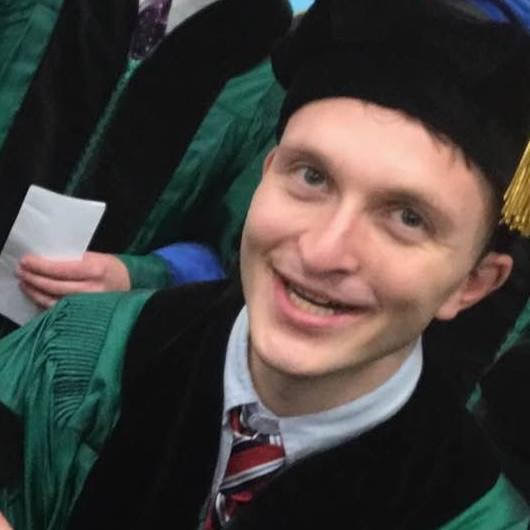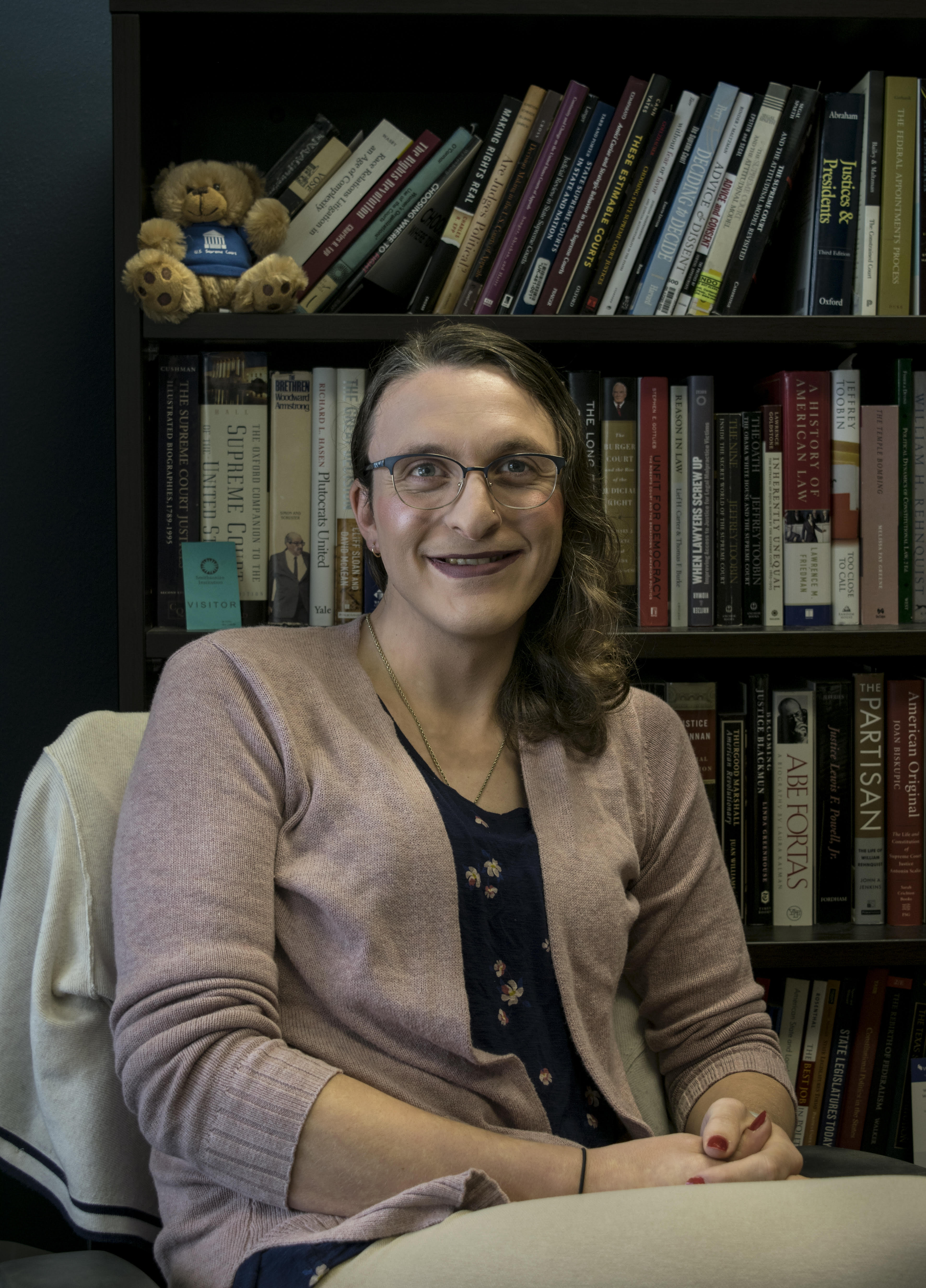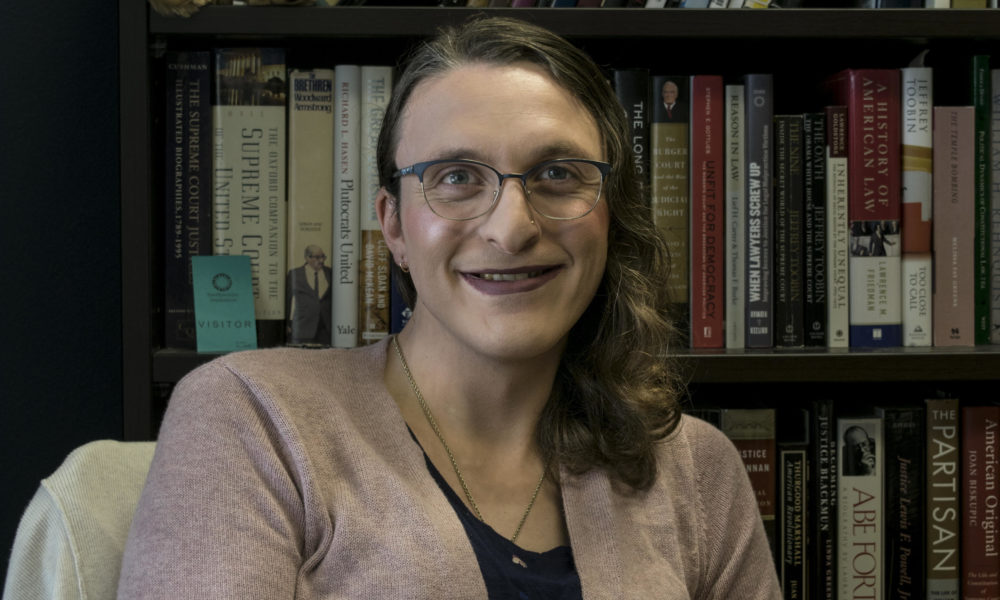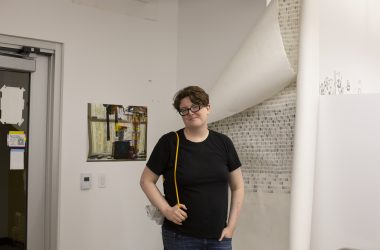Before last spring, Professor Kathryn J. Perkins felt that she was living her life in someone else’s body.
Born Jared Perkins in Illinois, Kathryn was raised in an Evangelical Christian community. She later moved to Texas. Both states have little to no legal protections for LGBTQ+ people, let alone social acceptance for those who identify out of the “norm.”
“I first came out as a gay man in eighth grade, and that was pretty terrible as you might imagine,” she said. “Texas and many other states were voting on banning same-sex marriage and the national conversation was just a very negative and hostile one.”
Kathryn doesn’t regret her decision. She felt a sense of urgency to come out in hopes of achieving a sense of authenticity and self-acceptance.
“I would say that I definitely had a lot of bullying, a lot of discrimination throughout middle school, into high school,” she said.
While attending Abilene Christian University, Kathryn came face-to-face with one of the worst cases of discrimination she’d ever encountered. Currently in Texas, as in many other states, LGBTQ+ community members have no legal protections against retaliation for their gender expression or sexual orientation.
“I was put on probation and targeted for being openly gay and prevented from running for student government,” Kathryn said.
This experience is what she credits for her inspiration and passion for civil rights. Perkins then went on to become a researcher and received her B.S., M.A. and Ph.D. in political science.
Enlarge

Courtesy of Kathryn Perkins
It was in her constitutional law class where she found an outlet to express her passion for something more.
“I saw myself in the political and constitutional struggles of many other marginalized groups,” Kathryn said. “I could turn some of the frustrations about the things that I’ve encountered into something that could advocate for social change…so that other people’s journeys don’t have to be as difficult.”
However, there was something she felt was missing from her life: authenticity.
Given the name of Jared at birth, Kathryn said that the life she lived as a gay man was more of a “LinkedIn profile” version of herself. Trimmed, proper and socially accepted, her “performative life” is something she looks back on as being exhausting, draining and frustrating.
“I was always worrying about what people think, what people would think if I wore this instead of that, what people would think if I did or didn’t take on certain responsibilities,” she said. “I spent a lot of time perfecting this mask, so that way I wouldn’t have to show people my true self.”
When she first came out as gay, Kathryn said her mother really struggled coming to terms with it.
“I think she really always loved me and wanted to accept me, but I think she couldn’t understand…why I couldn’t just not do ‘that,’” Kathryn said.
It would take five years for her mother, after many attempts of turning to prayer and therapeutic techniques to change Kathryn’s sexual orientation, to come to terms with her choice to be a gay man.
“I think she felt like she was not only in a place to accept me, but that she also felt bad about not having been able to do that sooner,” she said.
It wasn’t until she came to Long Beach State that she began to explore the identity she’d been hiding all along.
“If it had not been for this job, I don’t know that I would have been able to transition at this point in my life and feel like it was safe enough to really open that box,” she said. “It was really only after I came here that I began to process a lot of these suppressed feelings about my gender identity that I hadn’t wanted to process.”
Having been diagnosed with gender dysphoria, Kathryn initially felt pressure to perform as a gay male and was afraid to explore any further due to concerns of persecution.
She credits the “Life at the Beach” attitude on campus for inspiring her to take a look deeper into who she really was.
“I couldn’t keep gendering myself the way that I was and blame someone else,” she said.
It was then she began experimenting with her gender identity. Kathryn began her transition at the beginning of 2019 legally; however, her social and medical change only began at the end of the spring 2019 semester.
Kathryn defines the transition process by three main categories: social, legal and medical.
For many, the only stage ever reached is the social transition, which she said involves presenting as your idealized gender. In her case, this included figuring out what colors she liked, how she wanted to do her makeup and what hairstyle she wanted.
In many states, legal transition is not allowed until a trans individual undergoes a full gender-affirmation process, which can cost up to $100,000 according to the Human Rights Campaign. Those living in marginalized communities often cannot afford these “extraneous costs” and are left with only completing a part of their journey.
Kathryn has begun the legal process and received immense support from her department. She said, however, the administration of CSULB has been less than accommodating.
“I’ve been somewhat frustrated with the process at the university,” she said. “For some archaic reason the university requires you to pull from your official social security name, way beyond things that I think are appropriate.”
On class schedules and the department website, and in official references, however, she is referred to as Kathryn J. Perkins.
Her biggest worry when coming out, however, were not the thoughts of co-workers or students, but the reaction of her mother.
“I perceived that she was more comfortable with me being gay because I still got married, I still got a Ph.D.,” Kathryn said. “I did all of these things that I think she thought were really admirable and that she would really want for her child.”
Having already come out to her siblings over the phone, she wanted to take a different approach to coming out to her mother. Perkins decided to write a letter, to provide her with something tangible that she could refer back to and a framework to open the discussion between mother and daughter.
Enlarge

Madalyn Amato / Daily Forty-Niner
“When we finally talked, she assured me overwhelmingly that she loved me and that she supported me and she accepted me as her daughter,” Kathryn said.
Her biggest supporter all along has been her husband of three years, Johnathan Perkins. He identifies as a queer man, meaning he doesn’t prescribe to any one label, but still resides outside of the “heterosexual norm,” and has stood by Kathryn’s side during late nights writing her thesis to her decision to transition.
“I think that when I came out and we started having these conversations we just viewed this as another thing in our relationship that we are going to work through and process together,” she said.
When it came to choosing a name, Kathryn discussed different options, but said she kept coming back to Kathryn. Meaning “pure” in Greek, she saw this as a representation of her rebirth into her more authentic self.
She also wears the ancient ouroboros symbol, which represents new life, on a necklace.
As her transitional journey continues, Kathryn looks forward to her new life.
“It’s almost like 29 years of a life semi-lived, not un-lived, but not just lived to the fullest because I wasn’t showing up 100% to most of my life,” she said. “And so now I feel like I am showing up.”
Currently, she’s working on a book detailing the case R.G. & G.R. Harris Funeral Homes Inc. v. Equal Employment Opportunity Commission, a trans civil rights case currently being heard before the Supreme Court. The case on the surface, Kathryn said, is about trans rights, but she feels it has much deeper implications.
“I think it’s about: Are transgender people valid? Do they really exist?” Kathryn said. “I think that one of the conversations we need to have is the right to self-determine your identity, including your gender and sexual identities.”
She said that she doesn’t think the journey of transitioning ever ends, but it will continue to be a part of her identity.
“I will always be someone that used to be on the other side and has made that journey,” Kathryn said.
She hopes that by sharing her story she can inspire and empower others facing the same challenges.
“Everything that I have created in my life now is something that I had to transform and transition into…to realize that every day I can choose to go a different path…and I think that has been really powerful for me,” she said. “[I think of] this as a journey where I’m constantly evolving and becoming a more authentic version of myself.”
This article previously contained inaccurate information and was updated on Oct. 22 at 12:41 p.m.




